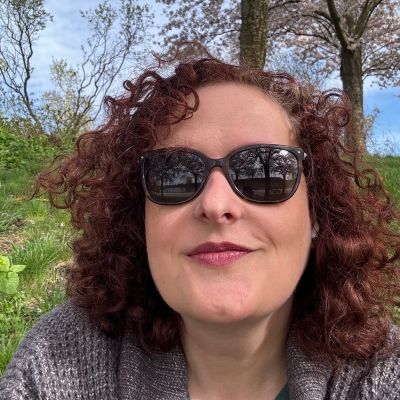Meet Our Faculty: Dr. Lynn Carlson
Meet Dr. Lynn Carlson
Assistant Professor of Physics, School of STEM and Professional Studies
Faculty member since 2024
lrcarlson2@csmd.edu
Pronouns: she/her
Courses Taught
-
PHY-1110 Fundamentals of Physics
-
PHY-1310 Calculus-Based Physics: Mechanics and Fluids
-
PHY-2300 Calculus-Based Physics: Vibrations, Heat, and Electricity
-
PHY-2320 Calculus-Based Physics: Magnetism, Optics, and Modern Physics
-
AST-1010 Introduction to Astronomy
About
Until age 11, I lived in College Park, Md., and then moved to the small college town of Slippery Rock, Pa., where I went to middle school and high school. I moved on to college at Michigan State University, followed by graduate school at Johns Hopkins University.
Excitingly, I lived in the Netherlands for four years, doing astronomy research there and in Paris. It was an amazing experience! In 2014, I moved back to the States and lived in the Boston area for 10 years.
Educational Background
I have bachelor's degrees in astrophysics and philosophy from Michigan State University. I did my graduate work at Johns Hopkins University, earning a master's and Ph.D. in physics, specifically astrophysics. I wrote my dissertation about star formation, in collaboration with the Space Telescope Science Institute and using data from the Hubble Space Telescope and the Spitzer Space Telescope.Q&A
I like to combine lecture with visuals like videos, images, and diagrams, with time for students to work through problems on their own or in groups. I encourage students to explore and think through problems themselves, especially in lab.
I love to paint, read, travel, and spend time with my husband and dog.
As faculty at CSM, I am working to bring astronomy nights to the community.
I believe that learning physics, at least at an introductory level, is about stretching your brain and learning new ways to think. That is powerful, even if you don't consider yourself a "STEM person." Yes, there is content to be learned, but you'll come out of class with stronger critical thinking skills and new ways of approaching and thinking through challenges.
- Doctoral dissertation: "A Panchromatic View of Star-Forming Regions in the Magellanic Clouds: Characterizing Physical and Evolutionary Parameters of Young Stellar Objects and Their Host Clusters"
- Committee chair, Magellanic Cloud Star Formation Workshop
- Author or co-author of more than 18 refereed journal publications
Last updated: 11-21-25
 my.CSMD
my.CSMD